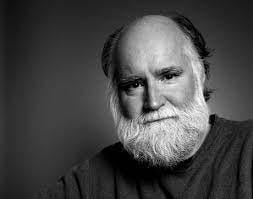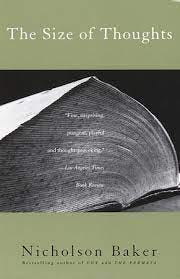“It seemed more a demonstration of the patient principles of candlemaking than a storm.”
For years I’d been embroiled in a mystery of microscopic proportions: I couldn’t find one of my favorite Philip Roth sentences in any of his books.
The sentence described the look of trees after an ice storm, and it contained the phrase “a demonstration of the patient principles of candlemaking.” I loved how the tongue-twister-ish alliteration of patient principles opened out into the expansive and surprising word candlemaking. I loved the simple aptness of the image: each branch neatly dipped in semi-translucence. I loved the fact that Roth, the quintessential novelist of the ear (among other organs), had here taken a brief and rewarding detour into the realm of the eye.
But I just couldn’t find it. My search had the hopeless, compulsive, sanity-imperiling quality of a hunt for missing keys: you know they have to be here, because where else would they be, and yet you’ve now been so thoroughly and repeatedly over the territory that you know they aren’t here — but still you know they have to be here, and so on until you’re whimpering and rocking in a corner.
Didn’t Zuckerman Unbound have a winter storm in it? I vaguely remembered Zuckerman going into a store to buy road salt and talking to an old man whose wife had died — probably it was in there. (It wasn’t.) Or that bit in The Ghost Writer when Zuckerman rides through the woods on Lonoff’s snowblower. It had to be there. (Nope.)
I reconciled myself to carrying this negligible burden of bafflement to my grave.
And then the other night I was looking for something to read while I brushed my teeth (a habit I’ve been unable to shed, despite the crispy white scallop-edged circles that now desecrate many of my books) and I happened to grab off the shelf Nicholson Baker’s The Size of Thoughts, a mid-career essay collection that had, like an old friend lost in the crush of a party, been circulating un-encountered since we reorganized our shelves after a recent move.
I must have felt the first intimations of revelation when I saw the words “Ice Storm” in the table of contents.
On Monday, if you looked out any window for a few minutes, you were certain to see, against a background of glittering Ace combs, the bough of a tree come crashing down. There was no wind, nor had there been any the first night. It seemed more a demonstration of the patient principles of candlemaking than a storm.
I stared blankly into the mirror, the director and protagonist of my own private M. Night Shyamalan movie. Of course this had been a Nicholson Baker sentence! My keys had been in the freezer all along! I had been wrong, wrong, fundamentally and spectacularly wrong.
And it seemed clear to me at once that this wrongness was not merely proof of my own cognitive decline, but a reminder of a significant principle of creativity.
Because in every large literary endeavor, you set out from the one-room cabin of your mind into the impossibly foggy landscape of your potential book, and you hold nothing in your hands but the navigational instruments of your initial idea. You can’t see anything out there. You may be (in fact you almost certainly will be) walking in circles for months. And so naturally you cling tightly to your humble compass and sextant. This will be a novel about an old man discovering a youth-restoring pool on a cruise ship. Or, This will be a 1,200-page epic about a couple’s marriage falling apart over the course of a single breakfast. You may not know much, but you do, thank goodness, know that.
So you flail and stagger, but after a while you discover something horrifying: you haven’t even gotten out the front door. All this time you thought you were fighting your way through woods, but no, you were just banging around in the coat rack. What are you doing wrong? Should you slither out backwards? Take a running start at the window? Apply to law school?
No. Because the fact is — no matter how many books I write, apparently this discovery awaits me each time, ever-fresh — one of the objects you’re clutching is the very thing preventing you from getting through the door. If you try putting each one down (maybe the old man isn’t on a cruise ship but is in a Hungarian bathhouse; maybe the couple isn’t breaking up but is in fact deciding to get married), you’ll suddenly fit through the door, and you will be rewarded with your first unimpeded steps out into the fog.
I once wrote tens of thousands of words about a husband and wife only to realize, after much unhappy stewing (maybe they got married a long time ago? maybe they got divorced? maybe she’s having an affair?), that they were in fact mother and son. I once worked for almost a year on the opening scene of a book, rewriting and rewriting, only to realize that it wasn’t the opening at all, and in fact should come about a hundred pages in.
I should etch it on my mirror: you must let go of everything you think you know. You will only find the Philip Roth quote you seek once you accept the possibility that it isn’t a Philip Roth quote at all.




Well done , as usual. You’ve captured an example of a common struggle with memory and used it to make an excellent broader point.
"For years I’d been embroiled in a mystery of microscopic proportions" Don't we all. I love this essay. I've always been captivated by the beauty of words and the images they create. Thank you